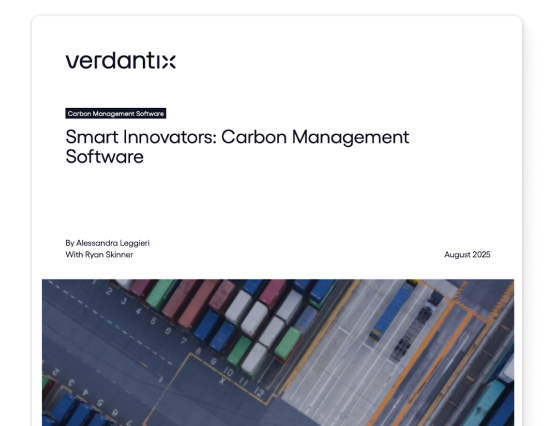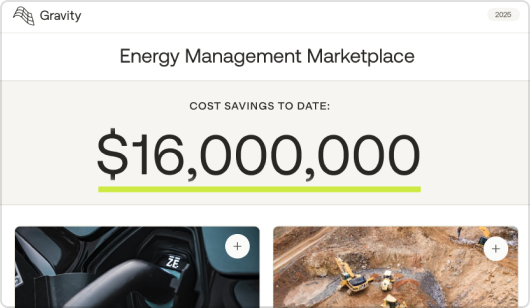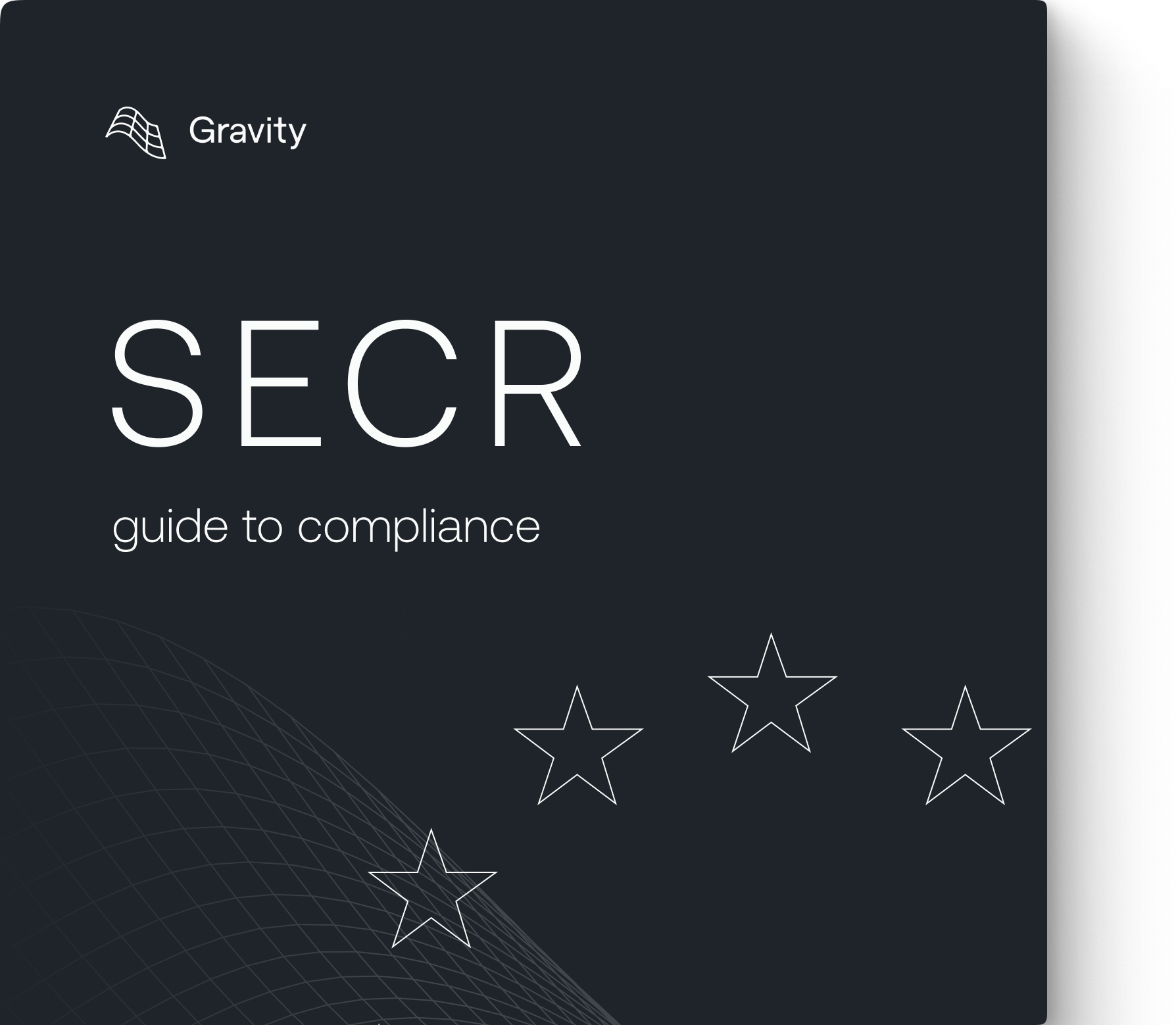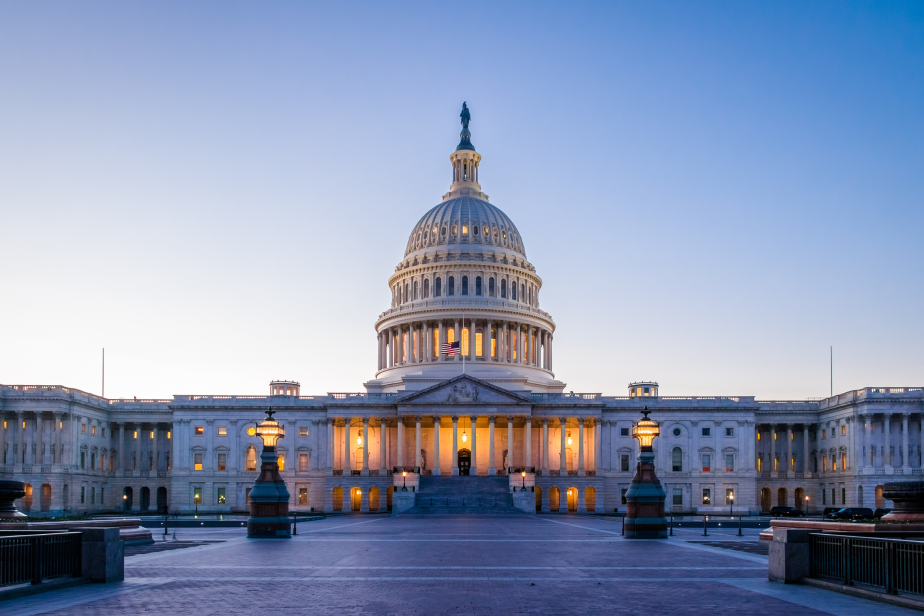See why customers are switching to Gravity
What California's Emissions Disclosure Rule Means for Your Business
California lawmakers passed legislation that approved the nation’s most sweeping greenhouse gas emissions disclosure rules for business.

[Update: On September 27, 2024, California’s Democratic governor, Gavin Newsom, signed into law Senate Bill 219 (SB 219), which enacts several amendments to the Climate Corporate Data Accountability Act (SB 253) and the Climate‐Related Financial Risk Act (SB 261).]
California lawmakers passed legislation that approved the nation’s most sweeping greenhouse gas emissions disclosure rules for business. Companies with over $1 billion in total annual revenue that do any business in the state of California will now have to disclose their Scope 1, 2, and 3 emissions annually. The groundbreaking Climate Corporate Data Accountability Act, or Senate Bill No.253 (SB 253), passed by 41-20 votes and is expected to apply to over 5,300 companies, according to Ceres.
What Companies Will Be Impacted by SB 253?
SB 253 impacts both public and private companies with total annual revenues in excess of $1,000,000,000 that do business in California. Any specified partnerships, corporations, limited liability companies, and other business entities that fall under this threshold will be impacted. Importantly, companies don’t have to be headquartered in California. As long as they do any business in the state, they’ll be covered under that rule. Since California is the largest state economy in the US, and the fifth largest economy in the world, this bill has sweeping reach.
Required Disclosure Begins in 2025
Companies would be required to disclose their Scope 1 and 2 emissions for the 2025 calendar year. The bill still needs to be signed by Governor Gavin Newson, but if it goes into effect, the bill would require the state board to develop and adopt reporting regulations on or before January 1, 2025. Then, companies will be required to annually disclose their Scope 1 and Scope 2 greenhouse gas emissions for the previous year starting in 2026 or by a date to be determined by the state board.
Starting in 2027, the rule expands to include disclosure of Scope 3 emissions too. Companies will have an additional 180 days to disclose their Scope 3 emissions to accommodate the added complexity.
If companies fail to disclose, they will be subject to an annual fee. The exact fee is yet to be determined and will be based on the costs of administering and implementing the rule.
The Inclusion of Scope 3 Emissions
Scope 3 emissions, which are also called supply chain or value chain emissions, typically account for the majority of a company’s carbon footprint. Traditionally, they are also notoriously harder to measure. SB 253 doesn’t shy away from Scope 3 disclosure, meaning companies will need to get a handle on not only their own operational emissions, but also those of their value chain partners. The bill does, however, give companies an extra year to prepare for that addition.
The inclusion of Scope 3 means that even smaller companies falling below the $1 billion threshold of this legislation may see an increase in disclosure requests if they do business with impacted companies.
SB 253 has been compared to the U.S. Securities and Exchange Commission’s (SEC) proposed rule requiring climate disclosure; however, it differs in two major ways. One is that the SEC proposal only applies to public companies, whereas the SB 253 threshold is based on revenue and includes private companies. The other is that SB 253 includes Scope 3 disclosure rules, and the SEC rule is largely expected to be stripped of Scope 3 disclosure.
Corporate Support for SB 253
Earlier this summer, several California-based companies that would be impacted by this new rule came out in support of the legislation. A letter from Apple to State Senator Scott Wiener said, “We’re strongly supportive of climate disclosures to improve transparency and drive progress in the fight against climate change, and we’re grateful for your leadership to drive comprehensive emissions disclosure.”
A statement from Google posted on Twitter said, “Corporate GHG emissions and climate-risk disclosures are a key element to combating climate change. We’ve been reporting our own emissions for over a decade, and we’re pleased to support SB253 and SB261, which will help create a robust climate-disclosure framework in California.”
Several well-known companies, such as Microsoft, IKEA USA, REI Co-Op, Patagonia, Atlassian, and Adobe, have also expressed their support for the California climate disclosure bill. These companies recognize the importance of transparency and accountability when it comes to addressing climate change.
Looking Ahead
For decades, California has been a trendsetter for environmental initiatives in the United States. The state is vulnerable to many of the extreme impacts of climate change, including drought, wildfire, and sea level rise, so it’s no surprise that local legislators are taking the lead. With the passing of the CA SB 253, California has once again set a new standard for other states to follow.
California is also considering passing an additional climate regulation – SB 261, the Climate-Related Financial Risk Act – which would require companies to disclose their exposure and approach to mitigating risks relevant to climate change.
This new California emissions reporting bill is expected to drive transparency around corporate sustainability practices across the US. Companies will need to be more diligent when implementing sustainability strategies and disclosing climate risks. The rule is also expected to spark changes in companies’ supply chains and speed up the drive towards decarbonization, including lower-carbon procurement and purchasing.
If your company is impacted by the passing of SB 253, Gravity can help you prepare for disclosure. If you’re interested in learning how we help automate the measurement process and streamline regulatory reporting, reach out to our team today.
Download the report to learn more
VerdantixTM Smart Innovators: Carbon Management Software

Curious about Gravity's Energy Management Marketplace?
Book a demo to learn more

Curious about Gravity's Europe expansion?
Book a demo to learn more
.png)
Ready to get off the merry-go-round?
Book a demo to learn more.

Curious about Gravity's CDP accreditation?
Book a demo to learn more.

California's Carbon Reporting Rule
Watch our webinar to prepare for California's new climate regulation

Curious about these features?
Book a demo to learn more.

Be prepared for SECR
Meet with our team, walk through the steps you'll need to take to report, and start a free trial to see how Gravity can help you report with greater speed and accuracy.

See the platform in action
Watch a short video to see why leaders like WM, TTI, and WAF have chosen to work with Gravity to simplify carbon accounting and drive business impact.

Meet with our team, walk through the steps you'll need to take to report, and start a free trial to see how Gravity can help you report with greater speed and accuracy.

Cut down reporting time by 70%
Request a demo to see these features in action and learn how they can save hours of manpower in your next reporting cycle.
Looking to Uplevel Your Sustainability Programs in 2025?
Reach out for a personalized meeting with our climate experts to find opportunities to save time on regulatory compliance, simplify internal communications, and execute projects that deliver real business impact.
Find energy efficiency projects that deliver value
Learn how to reduce energy costs and emissions.

Be prepared for the CSRD
Get in touch to find out how your company should prepare for the CSRD amidst changes to the regulation.






%20(1).png)